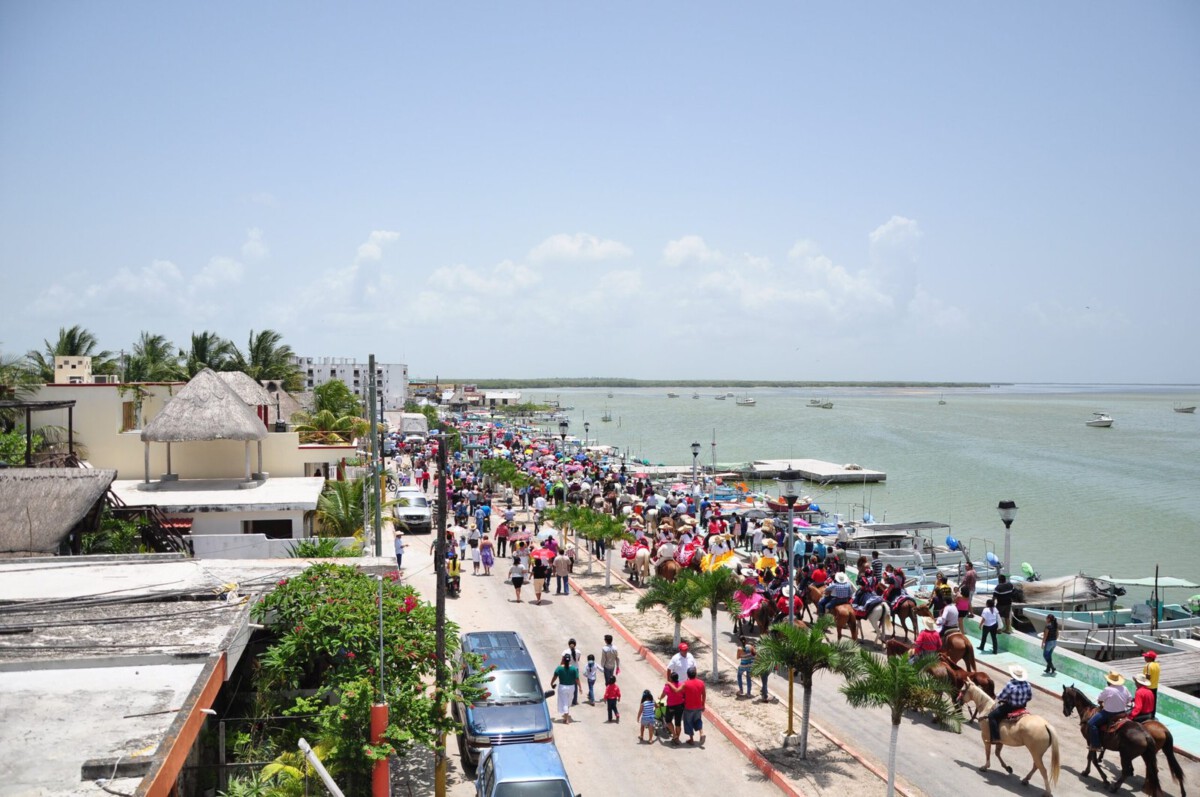Overcrowding and Tourist Fatigue

Cancún’s beaches used to feel like paradise, but in recent years, they’ve started feeling more like a packed concert. The Quintana Roo Tourism Board recorded an astonishing 14 million visitors in 2023, a number that’s left the city more crowded than ever. The once-relaxing white sands are now dotted with beach umbrellas as far as the eye can see, and finding a quiet spot is nearly impossible. Even getting into popular attractions now means standing in long lines, sometimes for hours, just to catch a glimpse of what used to be easily accessible. Locals and longtime visitors alike talk about “tourist fatigue,” with many feeling that the city has lost its laid-back charm. The rising crowds have made everything from booking a dinner reservation to catching a cab an exercise in patience. Recent statistics from 2024 show a 15% drop in repeat visitors, suggesting that the crowded conditions are pushing people to seek out less hectic destinations.
Rising Costs

Cancún was once celebrated for being a budget-friendly escape, but that reputation is slipping fast. According to the Mexican Ministry of Tourism, hotel prices jumped by an average of 20% from 2022 to 2024. It’s not just the cost of a bed—dining, entertainment, and even basic transportation have all become noticeably pricier. A simple dinner out can now set you back what you’d expect to pay in a big U.S. city, and some beach clubs charge entrance fees that leave travelers shaking their heads. These rising costs have made Cancún less attractive to those who are trying to travel on a reasonable budget. People are increasingly comparing what they get for their money in Cancún with other destinations and finding better value elsewhere. Even package deals and all-inclusive resorts aren’t immune, with add-on fees creeping into what used to be “all covered” experiences. For many, these price increases are the tipping point that sends them looking somewhere new.
Environmental Concerns

Cancún’s rapid expansion hasn’t just affected people—it’s taken a toll on the environment as well. Development has led to major issues like coral reef degradation and water pollution, both of which threaten the area’s natural beauty and long-term appeal. The National Institute of Ecology and Climate Change published a study in 2023 showing local coral reefs have declined by 50% over the past decade. Pollution from hotels and overuse of resources have also contributed to a noticeable decrease in water quality, with some days seeing unsightly seaweed and litter on the shore. Many travelers today are more conscious about their environmental impact and are choosing destinations that actively protect their local ecosystems. With growing concern about sustainability, Cancún’s struggles to balance tourism with conservation are turning many visitors away. Some guests leave feeling guilty about their footprint, making them hesitant to return.
Safety Issues

Safety is a big deal for travelers, and Cancún’s recent headlines have not been reassuring. In 2024, there was a noticeable increase in crime rates, including some violent incidents occurring near popular tourist areas. The U.S. State Department has issued advisories, cautioning travelers to stay alert and avoid certain neighborhoods, which only adds to the anxiety. These warnings have a real impact: people are opting for destinations with stronger reputations for safety and stability. Visitors have reported feeling uneasy about venturing out after dark or taking taxis late at night. Incidents of theft and scams have also been reported with increasing frequency, making even seasoned travelers think twice. For families and solo adventurers alike, safety is now a top priority, and Cancún’s shifting reputation isn’t helping its appeal.
Shift in Travel Preferences

The world has changed, and so have the ways people want to travel. According to a Booking.com survey from early 2025, about 60% of travelers now prioritize unique and authentic experiences over the classic tourist hotspots. People want to connect with a place, not just check it off a list. After years of restrictions and changed routines, many travelers are skipping crowded resorts in favor of hidden gems and quieter locations. The rise of remote work has given people the freedom to explore off-the-beaten-path destinations, further moving attention away from places like Cancún. With social media full of “secret spots” and “underrated escapes,” there’s a growing sense that Cancún is yesterday’s news. The city’s commercialized vibe, with big hotels and chain restaurants, feels less enticing to those craving authenticity and adventure.
Competition from Emerging Destinations

Cancún isn’t the only sun-soaked paradise out there, and its competitors are on the rise. Places like Tulum and Playa del Carmen, both nearby, are seeing an explosion in popularity. In 2023, Tulum registered a 25% increase in tourist arrivals, and the reasons are clear: smaller crowds, a more relaxed atmosphere, and a greater focus on eco-friendly travel. Internationally, destinations like Bali and Portugal have also drawn travelers with their blend of culture, value, and natural beauty. These up-and-comers offer alternatives that often feel fresher, trendier, and more in tune with what travelers are seeking now. With so many exciting options, Cancún’s monopoly on the Mexican Caribbean is slipping fast. The shift is evident even in online travel forums, where people who once praised Cancún now rave about its quieter, more authentic neighbors.
Limited Cultural Experiences

For many visitors, Cancún feels like a bubble—an international hotspot that sometimes forgets it’s in Mexico. The city’s focus on resorts, nightlife, and endless buffets leaves little room for deep cultural exploration. According to a 2024 report from the World Tourism Organization, there’s been a noticeable rise in demand for cultural tourism, with travelers seeking out destinations that let them connect with local traditions and communities. In Cancún, true Mexican culture can feel far away, lost behind the walls of all-inclusive resorts. While there are day trips and tours available, these often feel staged or touristy, and many visitors leave without feeling they’ve truly experienced the country. The lack of meaningful local interactions turns some people off, especially those who want more than just beachside relaxation. As the world’s appetite for authentic travel grows, Cancún’s limited offerings in this area are becoming more apparent.
Climate Change Impact

Cancún’s stunning coastline is under threat from forces far beyond its control. The Intergovernmental Panel on Climate Change (IPCC) reported in 2023 that Caribbean destinations like Cancún are at increased risk from rising sea levels and more frequent hurricanes. These changes aren’t just theoretical—they’ve already led to beach erosion, unexpected flooding, and closures of some coastal areas. Visitors have noticed more extreme weather events interrupting their vacations, sometimes cutting trips short or making certain seasons riskier than before. As people grow more aware of climate change and its impact, they’re thinking carefully about where they travel. Some are choosing destinations that are less vulnerable, while others are simply worried about what the future holds for places like Cancún. For many, the uncertainty is enough to prompt a change in plans.
Lack of Authenticity

There’s a growing sense among travelers that Cancún’s experience feels a little too polished, a little too predictable. The city is famous for its all-inclusive resorts, American chain restaurants, and familiar brands, but these comforts can make it hard to get a real sense of place. The Adventure Travel Trade Association’s 2024 survey found that 70% of travelers now prefer destinations that offer genuine local experiences. In Cancún, it’s easy to spend a week without ever really leaving the tourist bubble. Many visitors report feeling disconnected from the “real” Mexico, even after days of margaritas and poolside lounging. Some say the city feels more like a theme park than a living, breathing community. This lack of authenticity has become a deal-breaker for those seeking memorable, meaningful travel.
The Future of Travel

Travel is changing rapidly, and destinations that don’t adapt risk falling behind. In 2025, there’s a clear demand for places that are safe, sustainable, and offer unique, authentic experiences. Cancún’s challenges with overcrowding, rising prices, environmental issues, and shifting traveler expectations have made it less appealing for many. The tourism industry is at a crossroads, with visitor preferences evolving faster than ever before. Destinations that listen to travelers and prioritize what really matters will thrive, while those that stick to the old formula may struggle. What happens next will depend on whether Cancún can address these issues and reinvent itself for a new era of travel.






